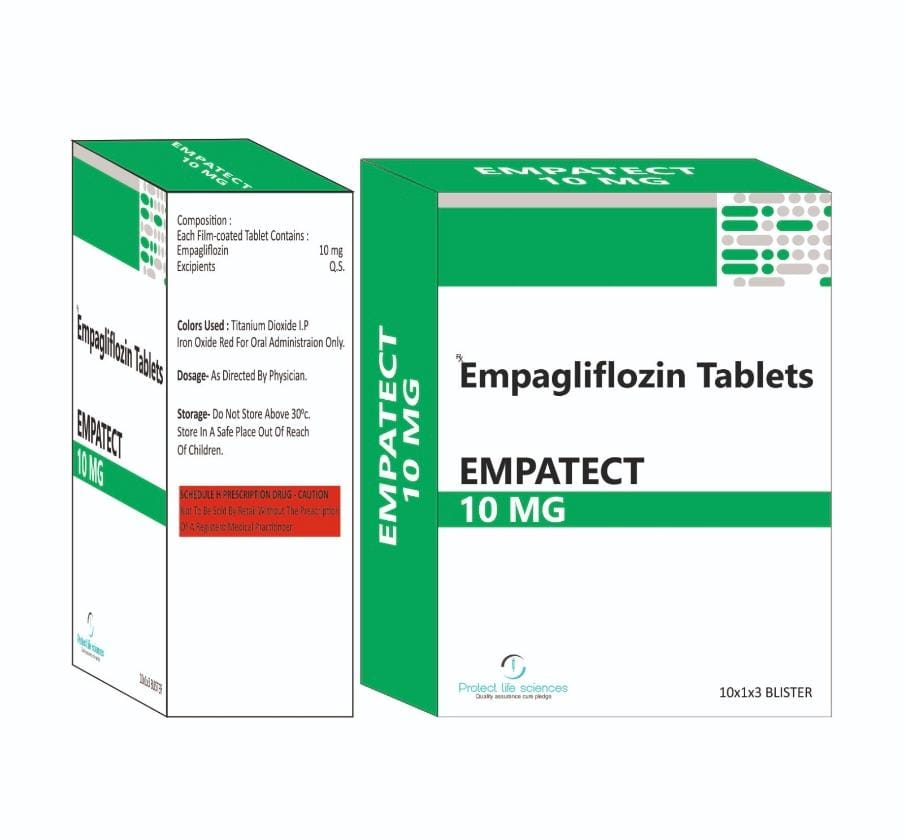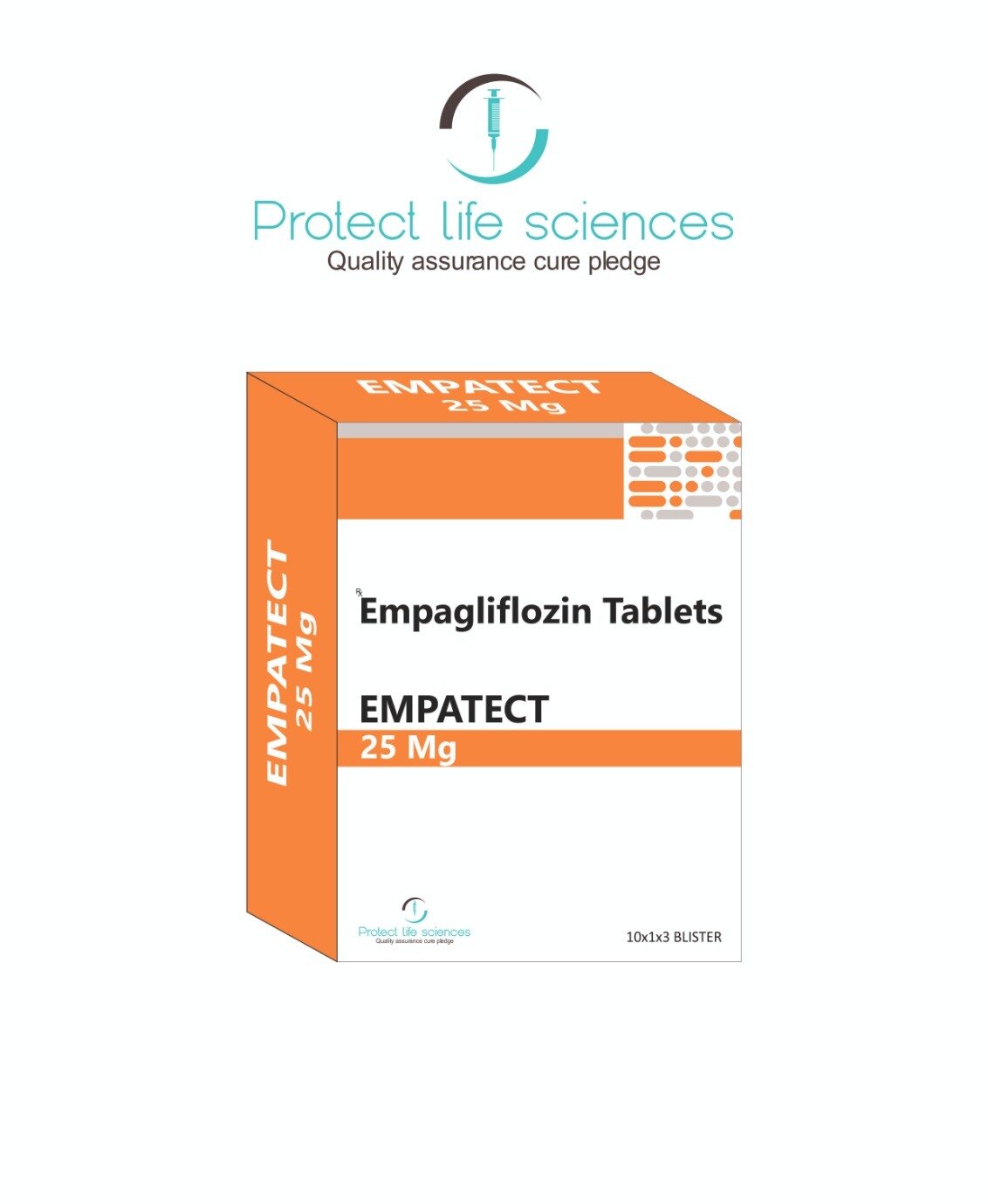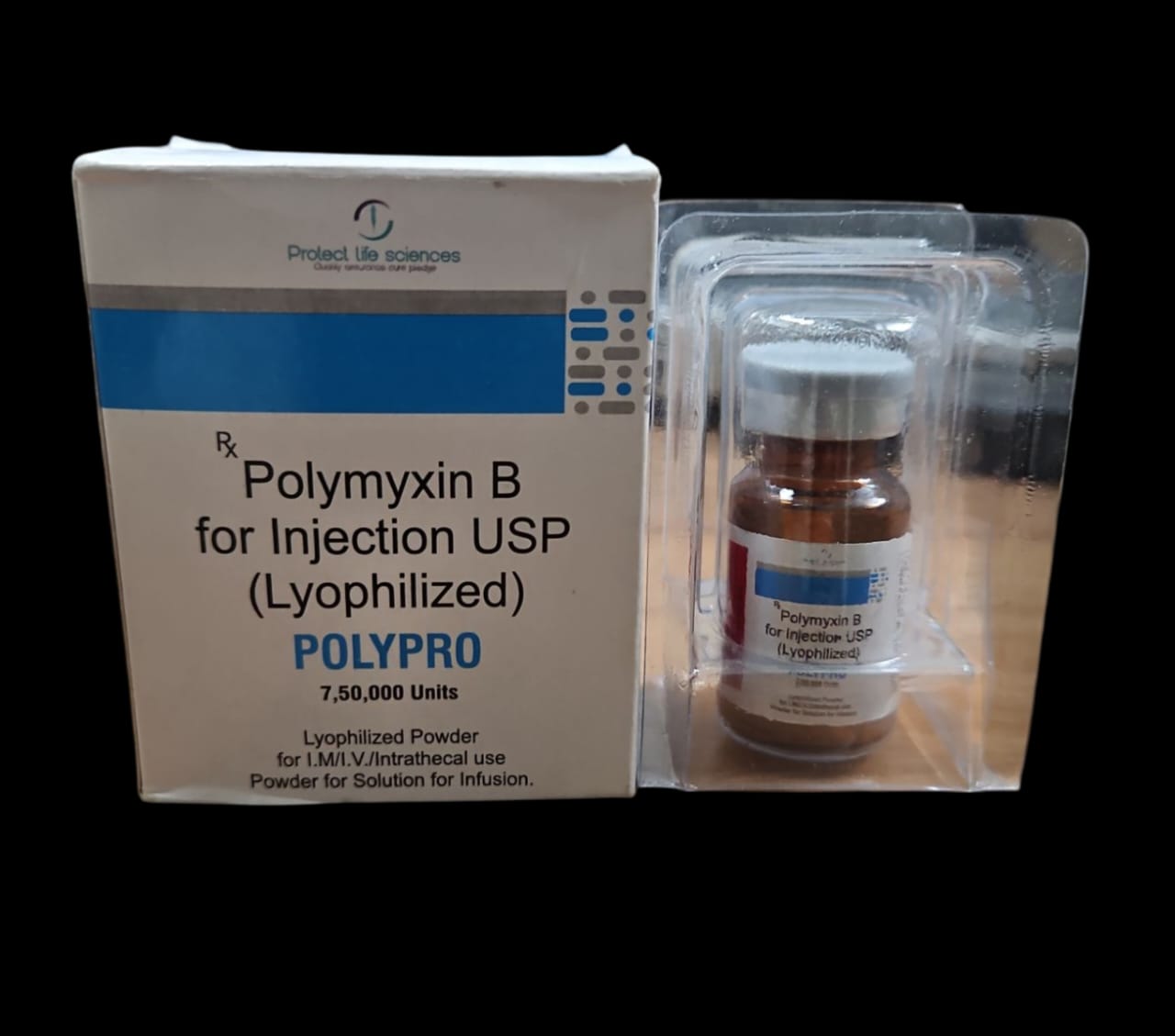Description
Product details
EMPATECT® 10 mg film-coated tablets EMPATECT® 25 mg film-coated tablets EMPATECT M -12.5mg/500mg tablets empagliflozin / Metrformin What Empatect is and what it is used for What Empatect is Empatect contains the active substance empagliflozin. Empatect is a member of a group of medicines called sodium glucose co-transporter-2 (SGLT2) inhibitors. What Empatect is used for Type 2 diabetes mellitus Empatect is used to treat type 2 diabetes in adults and children aged 10 years and older that cannot be controlled by diet and exercise alone. •Empatect can be used without other medicines in patients who cannot take metformin (another diabetes medicine). •Empatect can also be used with other medicines for the treatment of diabetes. These may be medicines taken by mouth or given by injection such as insulin. Empatect works by blocking the SGLT2 protein in your kidneys. This causes blood sugar (glucose) to be removed in your urine. There by Empatect lowers the amount of sugar in your blood. This medicine can also help prevent heart disease in patients with type 2 diabetes mellitus. It is important that you continue with your diet and exercise plan as told by your doctor, pharmacist or nurse. Heart failure •Empatect is used to treat heart failure in adult patients with symptoms due to impaired heart function. Chronic kidney disease •Empatect is used to treat chronic kidney disease in adult patients. What is type 2 diabetes? Type 2 diabetes is a disease that comes from both your genes and your lifestyle. If you have type 2 diabetes, your pancreas does not make enough insulin to control the level of glucose in your blood, and your body is unable to use its own insulin effectively. This results in high levels of glucose in your blood which can lead to medical problems like heart disease, kidney disease, blindness, and poor circulation in your limbs. What is heart failure? Heart failure occurs when the heart is too weak or stiff and cannot work properly. This can lead to serious medical problems and need for hospital care. The most common symptoms of heart failure are feeling breathless, feeling tired or very tired all the time, and ankle swelling. Empatect helps protect your heart from getting weaker and improves your symptoms. What is chronic kidney disease? Chronic kidney disease is a long-term condition. It might be caused by other diseases such as diabetes and high blood pressure or even by your own immune system attacking the kidneys. When you have chronic kidney disease, your kidneys may gradually lose their ability to clean and filter the blood properly. This can lead to serious medical problems such as swollen legs, heart failure or need for hospital care. Empatect helps protect your kidneys from losing their function. 2. What you need to know before you take Empatect Do not take Empatect • if you are allergic to empagliflozin or any of the other ingredients of this medicine (listed in section 6). Warnings and precautions Contact a doctor or the nearest hospital straight away: Ketoacidosis • if you experience rapid weight loss, feeling sick or being sick, stomach pain, excessive thirst, fast and deep breathing, confusion, unusual sleepiness or tiredness, a sweet smell to your breath, a sweet or metallic taste in your mouth, or a different odour to your urine or sweat, contact a doctor or the nearest hospital straight away. These symptoms could be a sign of “ketoacidosis” – a serious, sometimes life-threatening problem you can get because of increased levels of “ketone bodies” in your urine or blood, seen in tests. The risk of developing ketoacidosis may be increased with prolonged fasting, excessive alcohol consumption, dehydration, sudden reductions in insulin dose, or a higher need of insulin due to major surgery or serious illness. If you suspect you have ketoacidosis, contact a doctor or the nearest hospital straight away and stop taking this medicine until further advice from your doctor. Talk to your doctor, pharmacist or nurse before taking this medicine, and during treatment: • if you have “type 1 diabetes”. This type usually starts when you are young and your body does not produce any insulin. You should not take Empatect if you have type 1 diabetes. • if you have serious kidney problems – your doctor may limit your dose to 10 mg once a day or ask you to take a different medicine (see also section 3, ‘How to take Empatect’). • if you have serious liver problems – your doctor may ask you to take a different medicine. • might be at risk of dehydration, for example: o if you are being sick, have diarrhoea or fever, or if you are not able to eat or drink o if you are taking medicines that increase urine production [diuretics] or lower blood pressure o if you are 75 years old or older. Possible side effects Like all medicines, this medicine can cause side effects, although not everybody gets them. Contact a doctor or the nearest hospital straight away if you have any of the following side effects: Severe a







